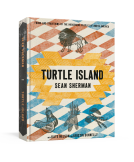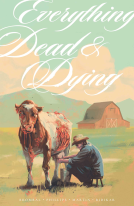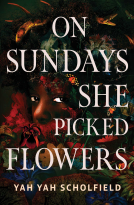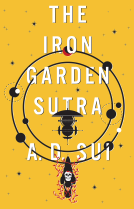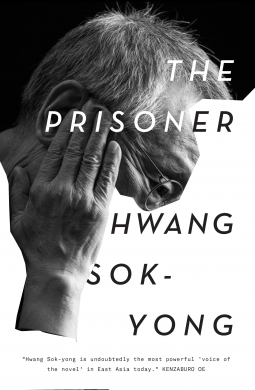
The Prisoner
A Memoir
by Hwang Sok-yong
This title was previously available on NetGalley and is now archived.
Send NetGalley books directly to your Kindle or Kindle app
1
To read on a Kindle or Kindle app, please add kindle@netgalley.com as an approved email address to receive files in your Amazon account. Click here for step-by-step instructions.
2
Also find your Kindle email address within your Amazon account, and enter it here.
Pub Date Aug 03 2021 | Archive Date Aug 03 2021
Verso Books (US) | Verso
Talking about this book? Use #ThePrisoner #NetGalley. More hashtag tips!
Description
In 1993, writer and democracy activist Hwang Sok-yong was sentenced to five years in the Seoul Detention Center upon his return to South Korea from North Korea, the country he had fled with his family as a child at the start of the Korean War. Already a dissident writer well-known for his part in the democracy movement of the 1980s, Hwang's imprisonment forced him to consider the many prisons to which he was subject--of thought, of writing, of Cold War nations, of the heart.
In this capacious memoir, Hwang moves between his imprisonment and his life--as a boy in Pyongyang, as a young activist protesting South Korea's military dictatorships, as a soldier in the Vietnam War, as a dissident writer first traveling abroad--and in so doing, narrates the dramatic revolutions and transformations of one life and of Korean society during the twentieth century.
Available Editions
| EDITION | Other Format |
| ISBN | 9781839760839 |
| PRICE | $39.95 (USD) |
| PAGES | 688 |
Average rating from 13 members
Featured Reviews
Hwang Sok-yong is a very well-known author in Korea. I've not read any of his work, but if this work is anything to go by, it would be interesting to read, albeit a bit splintered.
> I was never tortured. I was arrested several times during the Yushin dictatorship of the 1970s and once jailed for disobeying martial law declared after the assassination of President Park Chung-hee, but I never got so much as a slap across the face. Was I lucky, or were my stunts too tame to make it worthwhile? My fellow writer friends used to joke that one of these days my luck would run out and I would get my comeuppance. Thinking back, luck had something to do with it, but it probably helped that I was also a famous young novelist with a large, mainstream following, one who had serialized a saga titled Jang Gil-san every day for the past ten years in the pages of a daily. When I was first arrested at the airport and dragged, blindfolded, to this underground room, the anti-Communism investigators tried to intimidate me by shoving me into a corner and having a phalanx of investigators bark questions at me. A skinny man with piercing eyes cursed at me as he swung his fists. I had readied myself for this. I ducked the blows, pushed him away, and tore off my shirt. —What, the law isn’t enough for you? Fine, torture me. Hit me! The investigators tried to calm the other man down and pulled him away, calling him “Siljangnim,” which allowed me to guess that he was the section chief. I still remember what he said to me before he left. —You bastard, you think the world has changed? You think all you got to do is bullshit a little and we’ll let you go? We’re gonna flay the skin off your ass!
Hwang tells many tales, both from his activist and dissident life, and also from interpersonal experience with other people throughout the globe.
> I was a country bumpkin on his first overseas trip, and as the Europeans I met kept asking “Who are you?” I naturally began asking myself the same question. Who was I? I was forty-two. I had written four novellas and a volume of plays and had just published the tenth volume of my popular novel Jang Gil-san, which I had serialized since 1974. My work, however, did not exist outside of Korea. I promised myself on the plane that I wouldn’t even bother mentioning literature: I would only talk to as many people as possible about the plight of the citizens of Gwangju and our democracy movement.
The book jumps back and forth through time, through places, marriage and not, while painting a stark picture of a human being trying to exist under the thumb of a very authoritative government, with all that entails.
> “I am not a communist.” This was the first thing Yun I-sang said to me after shaking my hand. I was taken aback. “You don’t have to worry about that with me,” I replied. After he was arrested in 1967, someone had written about him saying how he couldn’t possibly be a communist because his music was too modern. The Soviets and the Eastern Bloc had believed any modernist music or experimental art to be reactionary.
> West Berlin in 1985 was like a desert island in the middle of East Germany. In essence, it was a city under occupation by the forces that had won World War II. No one could imagine that the wall looming over Berlin’s gloomy, peaceful cityscape would fall in a few years. Whenever I visited Berlin afterward, I would always find it odd that there was still no direct flight between Seoul and the German capital, and remember the grey walls towering above.
This book is almost 700 pages long, and I feel it should have been shortened. In my mind, it would have felt better if tightened-up, but that's just my own sentiments, and I've read an uncorrected advance proof of the book. Still, the structure and length of the book has nothing to do with translation.
Altogether, this book says a lot about both Hwang and the daily life of an artist when threatened with censorship, imprisonment and torture.
TL;DR: If you’re interested in the Korean Peninsula, I highly recommend you read this book (not K-pop, but history, literature, and politics).
Before I picked up this book, I knew little of Hwang Sok-yong. I was aware that he had visited North Korea and that he had been a political prisoner in South Korea, but that was <i>it</i>. Turns out, Hwang has been involved in many aspects of South Korea’s history – he's been <i>so</i> involved that I am utterly confused as to why I have never stumbled upon his name when reading about inter-Korean relations. Perhaps his involvement was just an inconsequential contribution to whatever was to happen (or, not happen, as it is always the case in Korea), but it was a fascinating read.
In the Prisoner, Hwang jumps around his life and related his involvement (he is often <I>not</i> just a mere spectator) in many historical events in the peninsula: the pre-Korean war division of the peninsula, the Korean war, Korea’s participation in the Vietnam War, the Cold War (when South Korea went through dictatorships and everyone was on the look-out for “North Korean spies”), the inter-Korean reunification talks that happened before Kim Dae-jung's time, and even the candlelight protest in 2016. He is also very well acquainted with almost every writer and poet Korea has ever produced to a point some chapters seemed to be some sort of “address book” indicating where he had met each author (many of them, he met in prison).
The most interesting chapters to me where the ones where he recounts meeting Kim Il-sung, his exile, and his teenage years when he discovered his vocation as a writer. His reflections on the inter-Korean back-and-forth were very interesting. He mentions how ironic it is that conservative South Korean political parties strive for North Korean human rights while the liberals ignore them, or how when Koreans are okay that is when they look for another reason to pick a fight with each other. Moreover, Hwang kept mentioning places and events that I had never heard about and I would be falling in rabbit holes every three pages.
While I had read Familiar Things by Hwang Sok-yong a few years ago and I didn’t care for the book, I am looking forward to reading the works mentioned in this one (The Guest and Princess Bari, specially, though I’m curious about Jang Gilsang an whether it has been translated). In short, this is a thick memoir, which is always intimidating, and it totally paid off – I may even re-read a few bits, if not the entire thing, in the future.
 Sean T, Reviewer
Sean T, Reviewer
This really wasn't for me. I found the story wasn't put together well so it seemed disjointed. I am always one who loves memoirs however this just seemed off for me.
It was interesting as I learned a bit about the culture other than that it left me cold.
 rachel j, Reviewer
rachel j, Reviewer
I read this over a week at a slower than normal pace but it did keep my attention and is a very informative account. Doesn't set the world on fire but worth a read .
If I had to describe this book in one word, I'd say tedious. Don't get me wrong, I enjoyed reading it and the way in which the chapters are formatted is my only major complaint. This book is over 600 pages and there were only 14 chapters and an epilogue. This makes it dense and slow to get through. Another gripe that I have is that Hwang throws so may names out at any given time and it can be confusing. That being said, I really enjoyed learning about South Korea in the aftermath of the Korean War. As an outsider looking in South Korea has always looked like a well put together country that was thriving. It was very weird to find out that it wasn't even close. Hwang's account of life is fascinating and something that I, as an American, have never seen before. I'm very glad he wrote an autobiography and shared his story with the world. Everyone should go read this. Jus be warned that it is a dense and long journey.
 Hannah K, Reviewer
Hannah K, Reviewer
So, for a point of view of one of the reunification activists and one of the few outsiders to have been to North Korea and a political prisoner in South Korea, this book is incredibly choice, and a little bit over half of this book covers these topics, along with the Candlelight Protests against Park Gyun-He (look them up for what we could’ve done to get Trump out if we’d actually committed to protesting). These bits are incredibly well written, and highly recommended. The problem is that the other half of the book is a stealth memoir that is so dryly written and self centered that it came close to putting me to sleep while reading it, which almost never happens to me. I don’t know if this is the fault of the translation or if it’s just the way that the original writer wrote it. This is a low four/five because I can only really recommend half the book, but was still a fun exercise.
Readers who liked this book also liked:
Sean Sherman; Kate Nelson; Kristin Donnelly
Cooking, Food & Wine, History, Multicultural Interest
